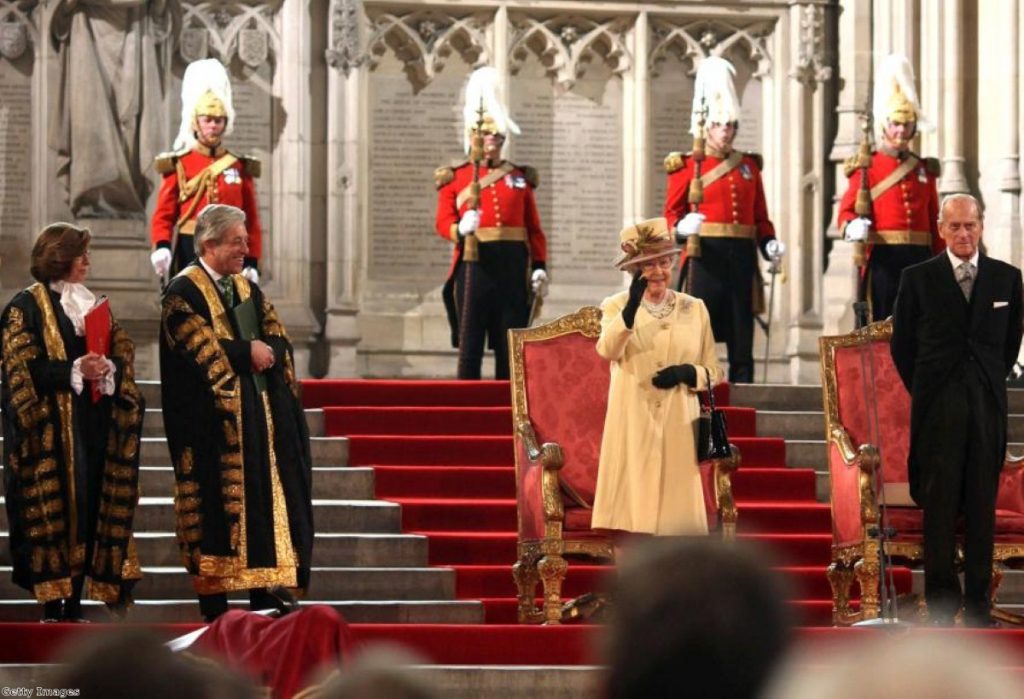Should the Queen block NHS reforms?
Today parliamentarians rose to applaud their Queen. In this Diamond Jubilee year, were campaigners really serious that she should end six decades of political neutrality to save the NHS?
By Alex Stevenson Follow @alex__stevenson
It is, technically, possible. A bill only becomes an Act of Parliament when it has received the full approval of not just the Commons and the Lords, but the Queen, too. So her refusal to grant royal assent would prevent the health and social care bill from becoming law.
Such a step would also set Britain back to the time when monarchs had political power – a state of affairs which has taken a Glorious Revolution, a Civil War and several beheadings to deal with. So it's a measure of the strength of passions the NHS reforms have aroused that desperate campaigners are now proposing she intervene.


"Normal democratic processes have been flouted," Dr Peter Fisher of the NHS Consultants' Association said last week. "By withholding her royal assent the Queen would reflect the wishes of the majority of her subjects to save the National Health Service from which they have benefitted so much throughout the 60 years of her reign."
There are, certainly, questions to be raised over the government's refusal to publish the NHS risk register, flouting an order from the information commissioner. Their appeal to the high court failed, but they continue to keep the document to themselves. Shadow health secretary Andy Burnham highlighted the issue in an unusual emergency debate this afternoon, in which the word 'constitution' has popped up one or two times.
But this is, in the bigger scheme of things, not the kind of constitutional outrage which justifies the flouting of democratic processes. Given the number of changes to this bill, the Queen could very easily conclude it has benefited from the process of parliamentary scrutiny. It has won the backing of the sovereign Commons in the time-honoured fashion.
It goes back to that age-old clash between representative democracy and participatory democracy. It doesn't matter that the majority of healthcare workers oppose the changes, or even the majority of voters. It's the elected representatives that matter.
This morning David Cameron and Ed Miliband sat next to each other in Westminster Hall, listening to the Queen "rededicate" herself to the service of this country. These political foes were united in their support for the monarch precisely because she is above politics. The recipe of her success over the last 60 years has been her magnificent ability to remain above the fray. Nothing, not even the NHS, is worth sacrificing that neutrality for.












